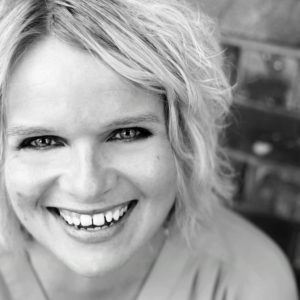Make no mistake, Allyson Twiggs Dyer knows how to hustle. She was a basketball star in high school and still holds the scoring record there after 30 years. Then, she attended the University of Arkansas on an athletic scholarship. After 14 years of working in destination management, she launched her marketing firm, The Twiggs Group.
Twiggs Dyer also knows something about burnout. She speaks with enthusiasm about her idea-turned-movement, “Reject the Hustle” that is resonating with people, especially women, who have heard her speak and joined her Facebook group. She wants all of us to refuse the notion that the only way to live a good life is by hustling all day long.
“Early in 2019, I was feeling burned out and noticed that much of the communication directed at women on social media pushed them to ‘hustle harder,’ ‘grind,’ and ‘work, work, work’ — all cloaked in pink, sparkly graphics,” Twiggs Dyer says. “The message was clear: if you didn’t have a side hustle, you were failing; if you were not working long hours, you were not succeeding.”
As the pressure to be even more productive spikes in this global pandemic, Twiggs Dyer offers three ways to build a healthier and more sustainable lifestyle amid the chaos.
Embrace the Power of Saying ‘No’
Even though Twiggs Dyer is known in her circle of friends as the one always saying “no,” she was often saying “yes” to work things that she didn’t want to do and was feeling overwhelmed and frustrated.
“So I started listening to my gut before responding to a request,” Twiggs Dyer says. “Did this opportunity make me feel expansive or contractive?” The practice of asking that question when she had to make a work decision improved her life and led her to think that others probably struggled with similar frustrations.
Twiggs Dyer launched “Reject the Hustle” to provide space for people to come together and inspire one another, to take care of themselves, and to share articles and resources on why turning down things that make us feel bad is actually a good practice.
“Saying “no” takes practice. It doesn’t happen overnight, and it does not mean you are missing out on good things,” Twiggs Dyer says. “Rejecting the hustle that leads to exhaustion and stress means opening up to an abundance you didn’t even know was coming for you.”
Twiggs Dyer explains that the practice is about taking stock of what your mind and body really need and making responsible choices with your time. “I like to think the idea empowers us to define what our hustle looks like, rather than letting others define it for us,” she says. “I want to teach others to say ‘no’ to things that are not right for them so they can say “yes” to opportunities that bring joy.”
Focus on Work That Aligns With Your Values
The flip side to saying “no” is saying “yes” to the things that give you energy and align with your values, Twiggs Dyer says. “In the beginning, I felt pressure to take advantage of every opportunity and potential client,” she says. “But I soon realized, every prospect is not meant for me. Six years after starting my business, I am much more discerning.”
This strategy applies to how Twiggs Dyer approaches “Reject the Hustle.” “I would like to see and create content that encourages a shift in our thoughts and actions by curating life to what is efficient. How would we feel if we could mindfully cut out excessive hustle from our lives?” she says. “Rejecting the hustle that leads to exhaustion and stress means opening up to an abundance you didn’t even know was coming for you.”
Build an Anti-Hustle Routine During the Pandemic
Now, as we socially distance and self-quarantine, is the time to create an anti-hustle practice for your own work life.
These are the small, useful steps Twiggs Dyer takes in her own life to reject the hustle:
- I do not take meetings on Mondays. For me, that day is best saved for planning and organizing the week.
- I protect my calendar by scheduling mindfully so my day isn’t crammed.
- I stick to a morning routine. Instead of looking at my phone first thing; I exercise for 45 minutes, meditate, and then journal. Recently, I’ve added a few minutes of house cleaning and sanitizing to this routine. After completing all of this, I’m ready for the workday.
- I refer other marketing agencies to clients for whom my business is not the best fit.
- When approached with a request I’m unsure of, I respond with my favorite phrase, “Can I get back to you?” That buys me time and takes the pressure off having to answer right away.
Eventually, life will go back to normal. The COVID-19 pandemic has certainly highlighted the problems of a hustle culture. Twiggs Dyer points out that many of the same kinds of messages that glorify busyness still pop up in our feeds and trigger new comparisons: someone else is writing a book or doubling down on their business while sheltering in place. For now, we have an opportunity to be mindful of our expectations and mental health, step back, and see and how a more open schedule is changing our lives in a healthy way. An anti-hustle routine can help each of us come out of this crisis a better, stronger person.






